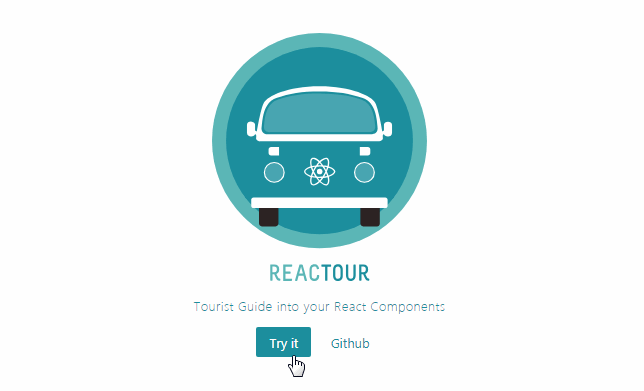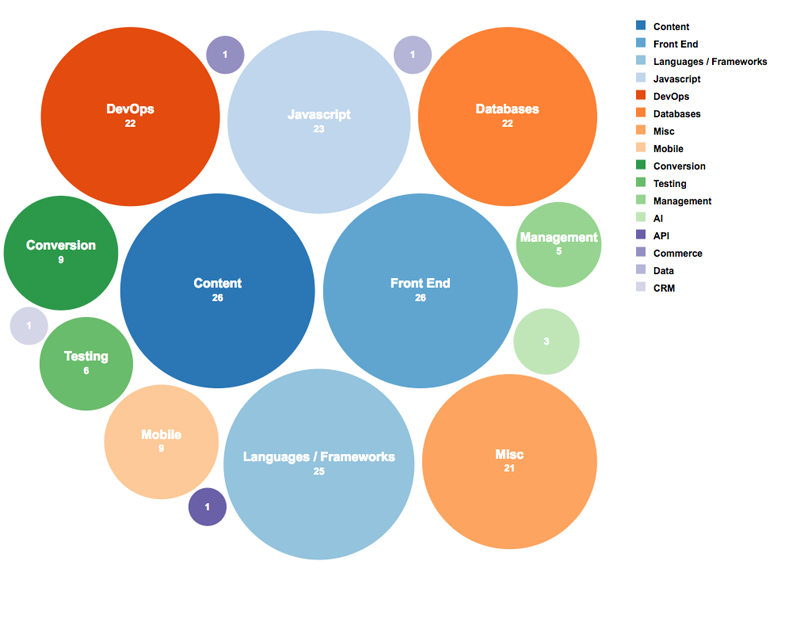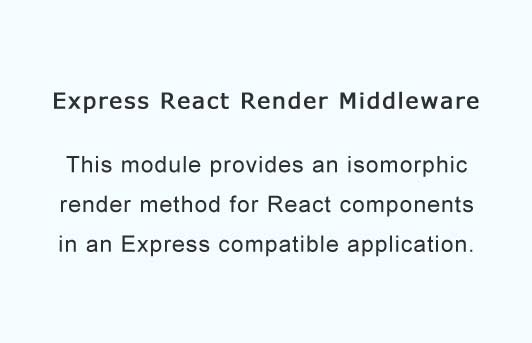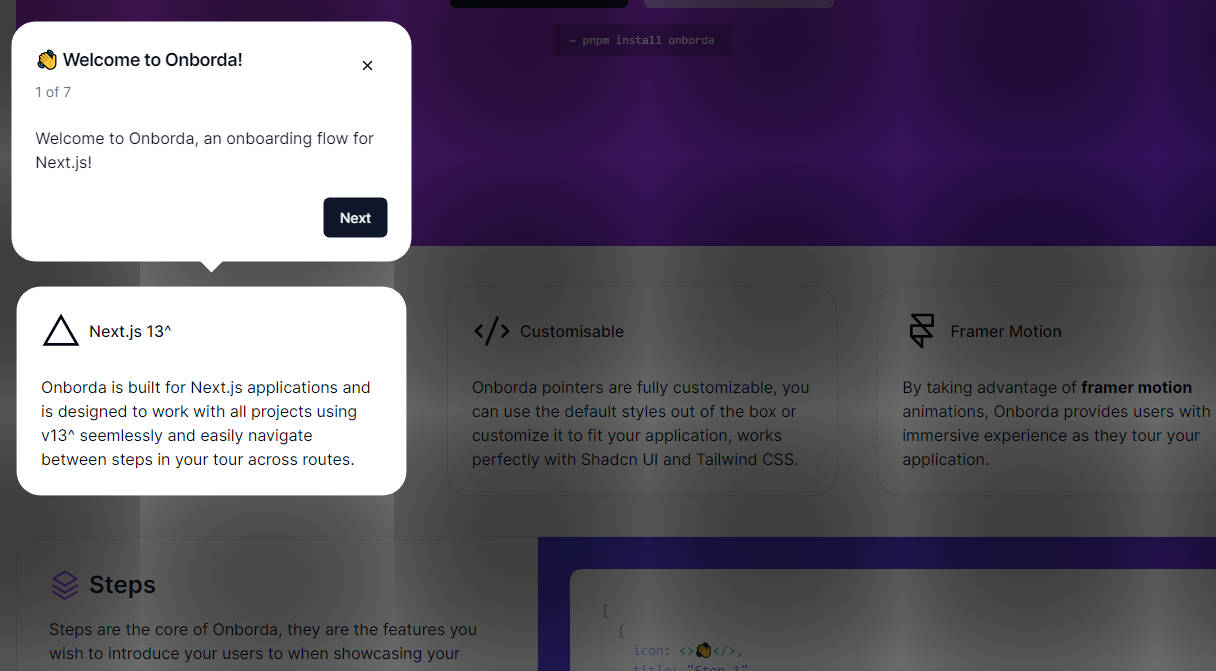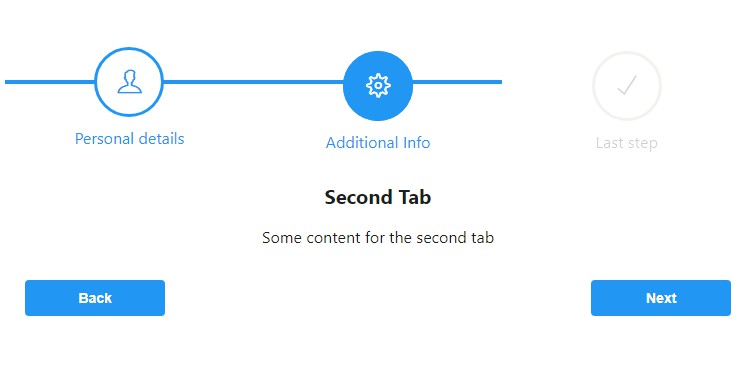reactour
Tourist Guide into your React Components.
Install
npm i --save reactour
yarn add reactour
Initialize
Add the Tour Component in your Application:
import Tour from 'reactour'
class App extends Component {
// ...
render (
<div>
{ /* other stuff */}
<Tour
steps={steps}
isOpen={this.state.isTourOpen}
onRequestClose={this.closeTour} />
</div>
)
}
const steps = [
{
selector: '.first-step',
content: 'This is my first Step',
},
// ...
]
PropTypes
| Prop | Desc | Type | Default | Is Required |
|---|---|---|---|---|
accentColor |
Change --reactour-accent color (helper number + dots) |
string |
#007aff |
|
badgeContent |
Function to customize Badge content (current, total) => {} |
func |
||
className |
Custom class to add to the helper | string |
||
closeWithMask |
Close clicking the mask | bool |
true |
|
disableDotsNavigation |
Isn't possible to interact with helper dots | bool |
||
disableInteraction |
Isn't possible to interact with highlighted elements | bool |
||
disableKeyboardNavigation |
Isn't possible to interact with keyboard arrows | bool |
||
getCurrentStep |
Function triggered each time current step change | func |
step => { /* 'step' is the current step index */ } |
|
goToStep |
Programmatically change current step | number |
||
highlightedMaskClassName |
Custom class name for element which is overlaid target element | string |
||
inViewThreshold |
Scroll element to show when is outiside viewport adding this threshold value | number |
||
isOpen |
You know… | bool |
✅ | |
lastStepNextButton |
Change Next button in last step into a custom button to close the Tour | node |
||
maskClassName |
Custom class to add to the mask | string |
||
maskSpace |
Padding between elemente showed and mask | number |
10 |
|
nextButton |
Next navigation button text | node |
||
nextStep |
Override default nextStep function to use a custom one |
func |
||
onAfterOpen |
Function triggered after open | func |
() => { document.body.style.overflowY = 'hidden' } |
|
onBeforeClose |
Function triggered before close | func |
() => { document.body.style.overflowY = 'auto' } |
|
onRequestClose |
Function triggered to close | func |
||
prevButton |
Prev navigation button text | node |
||
prevStep |
Override default prevStep function to use a custom one |
func |
||
rounded |
Beautify helper + mask with border-radius (in px) | number |
0 |
|
scrollDuration |
Smooth scroll duration when positioning the target element | number |
1 |
|
scrollOffset |
Offset when positioning the target element | number |
calculates the vertical center of the page | |
showButtons |
Show helper navigation butons | bool |
true |
|
showNavigation |
Show helper navigation dots | bool |
true |
|
showNavigationNumber |
Show number when hovers on each navigation dots | bool |
true |
|
showNumber |
Show helper number badge | bool |
true |
|
startAt |
Starting step each time the Tour is open | number |
||
steps |
Array of steps with info and props |
[view bellow] | ✅ | |
update |
Value to listen if a forced update is needed | string |
||
updateDelay |
Delay time when forcing update. Useful when there are known animation/transitions | number |
1 |
steps: PropTypes.arrayOf(PropTypes.shape({
'selector': PropTypes.string,
'content': PropTypes.oneOfType([
PropTypes.node,
PropTypes.element,
PropTypes.func,
]).isRequired,
'position': PropTypes.oneOf(['top', 'right', 'bottom', 'left', 'center']),
'action': PropTypes.func,
'style': PropTypes.object,
})),
Steps example
const steps = [
{
selector: '[data-tour="my-first-step"]',
content: ({ goTo, inDOM }) => (
<div>
Lorem ipsum <button onClick={() => goTo(4)}>Go to Step 5</button>
<br />
{inDOM && '? Look at your step!'}
</div>
),
position: 'top',
action: node => {
node.focus()
console.log('yup, the target element is also focused!')
},
style: {
backgroundColor: '#bada55',
},
},
// ...
]
